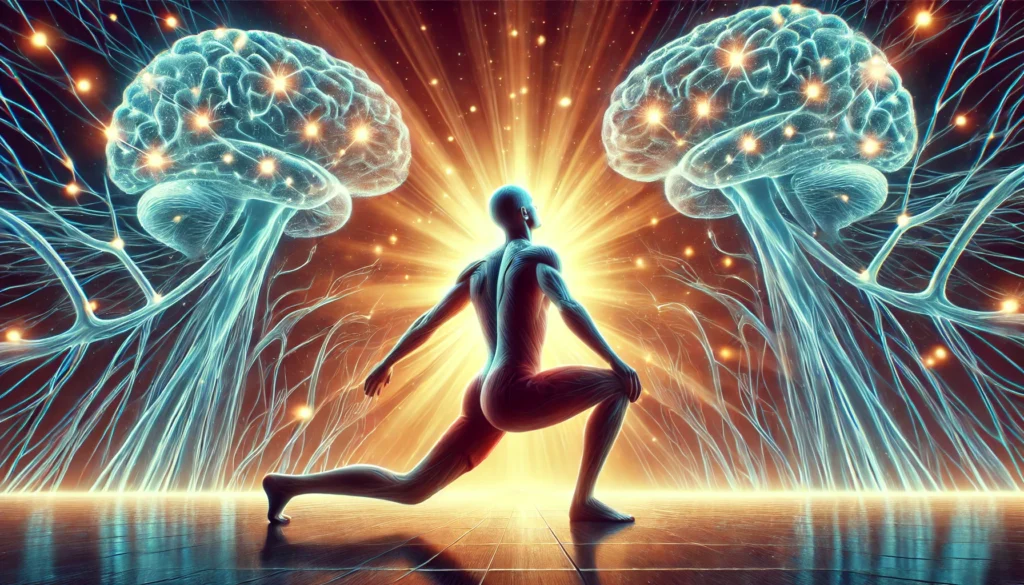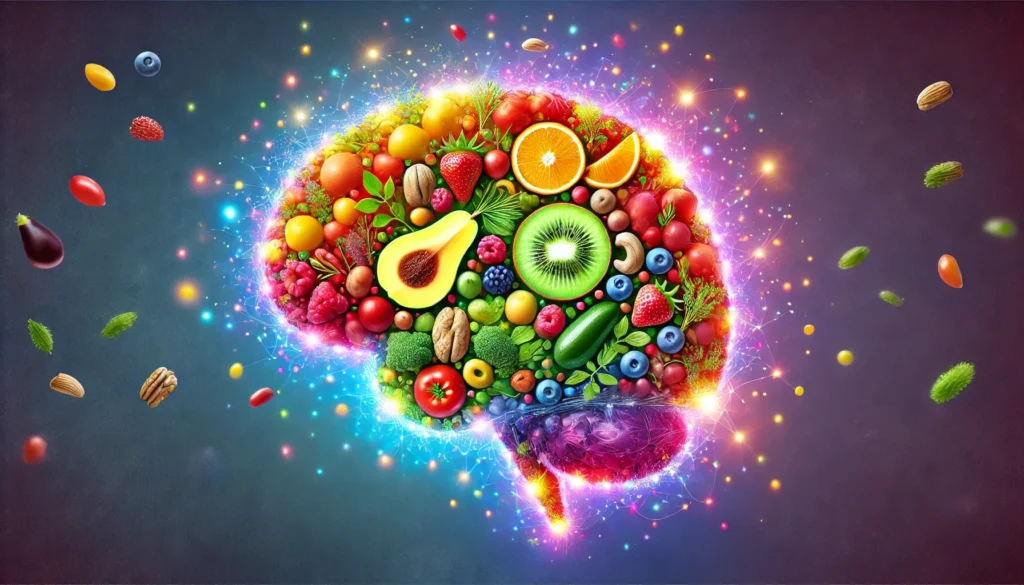Fatigue and memory loss often go hand in hand. When you’re exhausted, your brain’s ability to process and store information diminishes. This can lead to difficulty concentrating, forgetfulness, and a general decline in cognitive function. But why does this happen?
You may also like: Understanding the Science Behind Lost Memory
The Science Behind Fatigue and Cognitive Impairment
Fatigue affects the brain’s prefrontal cortex, a region responsible for decision-making, attention, and memory. Prolonged tiredness can impair synaptic plasticity, the brain’s ability to adapt and learn new information. This impairment can manifest as memory problems and difficulty concentrating. The prefrontal cortex is crucial for executive functions, and when fatigued, the efficiency of these functions drops significantly, leading to slower thought processes and a reduced ability to juggle multiple tasks.
Moreover, sleep deprivation—a common cause of fatigue—disrupts the brain’s natural cleaning process, where cerebrospinal fluid washes away metabolic waste. Without adequate rest, these toxins accumulate, affecting cognitive performance and memory retention. This cleansing process is vital for brain health, and its disruption can lead to the build-up of beta-amyloid proteins, often associated with Alzheimer’s disease. Chronic sleep deprivation can also alter neurotransmitter levels, further impairing cognitive functions.
The Role of Neurotransmitters in Fatigue and Memory
Neurotransmitters like serotonin, dopamine, and acetylcholine play a significant role in regulating mood and cognitive function. Fatigue can alter the balance of these chemicals, leading to mood swings and impaired cognitive abilities. Serotonin helps stabilize mood and well-being, while dopamine is critical for motivation and focus. Acetylcholine is directly involved in learning and memory processes. When fatigue disrupts these neurotransmitters, it can contribute to cognitive fog and reduce the brain’s ability to process and recall information effectively.
Psychological and Emotional Impact
Fatigue doesn’t just affect the brain physically; it also has psychological and emotional repercussions. Chronic tiredness can lead to increased stress levels, anxiety, and depression, all of which can further impair memory and cognitive function. Stress hormones like cortisol can be elevated, influencing brain areas related to memory. Emotional exhaustion can also reduce motivation to engage in activities that stimulate brain health, such as social interactions or pursuing hobbies.
Practical Strategies to Combat Fatigue and Enhance Memory
Now that we understand the connection, let’s dive into actionable strategies to alleviate tiredness and bolster memory.
Prioritize Quality Sleep
Sleep is the cornerstone of cognitive health. Aim for 7-9 hours of restorative sleep per night. Establish a regular sleep schedule, create a calming bedtime routine, and optimize your sleep environment by reducing noise and light. Consider sleep-enhancing practices like meditation or deep breathing exercises to improve sleep quality. Incorporating sleep hygiene practices, such as avoiding screens an hour before bed and keeping your bedroom cool and dark, can also significantly enhance sleep quality.
Improve Sleep Hygiene
Developing a consistent sleep routine is vital for improving sleep quality. Going to bed and waking up at the same time every day helps regulate your body’s internal clock. Avoid caffeine and heavy meals close to bedtime, and consider using blackout curtains to create a sleep-friendly environment. The use of white noise machines can also help mask disruptive sounds, promoting deeper sleep. Experiment with calming scents like lavender, which can aid relaxation and signal to your brain that it’s time to wind down.
Incorporate Regular Physical Activity
Exercise is a powerful antidote to fatigue and memory loss. Physical activity increases blood flow to the brain, promoting the growth of new neurons and enhancing synaptic plasticity. Aim for at least 150 minutes of moderate aerobic exercise per week. Activities like brisk walking, cycling, or swimming can boost energy levels and cognitive function. Incorporating strength training exercises twice a week can further enhance overall health and provide added benefits to brain function.
The Cognitive Benefits of Exercise
Exercise not only boosts physical health but also enhances mental well-being. Engaging in regular physical activity can reduce symptoms of anxiety and depression, often linked with fatigue. Exercise releases endorphins, the body’s natural mood lifters, which can improve overall mood and mental clarity. Furthermore, exercise has been shown to increase the size of the hippocampus, the brain area involved in memory and learning.

Varied Exercise Routines for Brain Health
Diversifying your exercise routine can prevent boredom and target different aspects of physical and cognitive health. Incorporate activities like yoga or tai chi, which promote mindfulness and stress reduction while improving flexibility and balance. High-intensity interval training (HIIT) can be an efficient way to improve cardiovascular health and brain function. Group sports or dance classes can also add a social element, providing emotional benefits that enhance overall well-being.
Nourish Your Brain with a Balanced Diet
A nutrient-rich diet is essential for combating fatigue and supporting memory. Incorporate foods high in omega-3 fatty acids (e.g., fatty fish, walnuts), antioxidants (e.g., berries, dark chocolate), and vitamins (e.g., leafy greens, whole grains). Stay hydrated, as even mild dehydration can impair cognitive performance. Limiting sugar and processed foods can prevent energy crashes and maintain stable blood sugar levels, which are crucial for sustained cognitive performance.
The Importance of Micronutrients
Vitamins and minerals play a critical role in brain health. B vitamins, such as B6, B12, and folate, are crucial for brain function and can help reduce levels of homocysteine, a compound linked to cognitive decline. Minerals like magnesium and zinc support neurotransmitter function and brain signaling. Consuming a variety of fruits, vegetables, nuts, and seeds can ensure adequate intake of these essential nutrients.
Hydration and Brain Function
Water is essential for maintaining optimal brain function. Dehydration can lead to concentration difficulties, short-term memory problems, and mood swings. Aim to drink at least 8 cups of water per day, more if you are physically active. Herbal teas and water-rich foods, such as cucumber and watermelon, can also contribute to your daily hydration needs.
Manage Stress Effectively
Chronic stress is a significant contributor to fatigue and memory problems. Practice stress-reducing techniques such as mindfulness meditation, yoga, or tai chi. These activities can lower cortisol levels, improve mood, and enhance cognitive function. Taking regular breaks throughout the day to relax and breathe deeply can also help manage stress levels. Developing hobbies and engaging in leisure activities can provide a mental escape, improving overall life satisfaction and reducing stress.
Mindfulness and Meditation
Mindfulness practices involve focusing on the present moment without judgment. This can help reduce stress and improve cognitive flexibility, allowing for better problem-solving and creativity. Meditation, even for a few minutes each day, can enhance attention span and memory retention. Apps like Headspace or Calm offer guided sessions that can be a good starting point for beginners.
Social Connections and Emotional Well-being
Maintaining strong social connections can provide emotional support and reduce stress. Engaging in meaningful conversations and participating in group activities can enhance mood and cognitive function. Volunteering or joining clubs can provide a sense of purpose and community, which are crucial for mental well-being. Regular social interactions stimulate brain areas related to emotion regulation and memory, contributing to overall cognitive health.
Exploring Nootropics and Supplements
For those interested in biohacking, nootropics—substances that enhance cognitive performance—may offer additional support. However, it’s crucial to approach these with caution and consult a healthcare professional before use.

Popular Nootropics for Memory Enhancement
- Bacopa Monnieri: An herb traditionally used in Ayurvedic medicine, shown to improve memory and reduce anxiety. Studies suggest it may enhance cognitive processes, including attention and information processing speed.
- Ginkgo Biloba: Known for increasing blood circulation in the brain, potentially improving memory and cognitive function. Some research indicates it may help delay the onset of cognitive decline in older adults.
- Rhodiola Rosea: An adaptogen that may reduce fatigue and enhance mental performance. It is believed to help the body adapt to stress and improve mood, which can indirectly benefit cognitive function.
Emerging Trends in Cognitive Enhancement
Recent studies have highlighted the potential of nootropic stacks—combinations of nootropics—to synergistically enhance cognitive function. For instance, pairing caffeine with L-theanine can improve alertness and focus without the jitteriness often associated with caffeine alone. This combination is popular among those seeking a balanced boost in energy and concentration.
The Role of Adaptogens
Adaptogens are natural substances that help the body cope with stress. Ashwagandha and Panax ginseng are examples that may improve mental clarity and reduce stress-related fatigue. These herbs can support adrenal function and stabilize mood, promoting a sense of calm and focus. Incorporating adaptogens into your routine should be done gradually and under professional guidance to ensure safety and efficacy.
The Role of Technology in Cognitive Health
As technology advances, new tools are emerging to help combat fatigue and improve memory. Brain-training apps, wearable devices that track sleep patterns, and virtual reality environments designed for relaxation and focus are gaining popularity.
Brain-Training Apps
Apps like Lumosity or Elevate offer games and exercises designed to challenge your cognitive abilities, potentially improving memory, attention, and problem-solving skills over time. These apps use personalized training programs to target specific cognitive areas, offering progress tracking to motivate users. Regular use of these apps can help maintain cognitive sharpness and provide mental stimulation, especially important as we age.
The Science Behind Brain Games
Brain-training games are based on the concept of neuroplasticity—the brain’s ability to reorganize itself by forming new neural connections. Engaging in these games can help strengthen neural pathways, improving cognitive flexibility and resilience. While not a replacement for other cognitive health strategies, brain games can be a fun and beneficial supplement to a comprehensive brain health plan.
Wearable Devices
Wearables like the Oura Ring or Fitbit can provide insights into your sleep quality and daily activity levels, helping you make informed decisions to enhance your overall cognitive health. These devices offer data on sleep stages, heart rate variability, and physical activity, allowing users to track patterns and make necessary lifestyle adjustments. Advanced wearables can even provide suggestions for optimizing rest and activity based on personal data.
Virtual Reality for Relaxation
Virtual reality (VR) technology is being explored for its potential to reduce stress and enhance cognitive function. VR environments can transport users to calming, immersive worlds, providing a unique form of relaxation and mental escape. This technology can be particularly beneficial for those who find traditional meditation or relaxation techniques challenging. VR sessions can offer guided mindfulness experiences, helping users practice relaxation and focus in an engaging way.
Historical Context and Future Implications
Throughout history, humans have sought ways to enhance mental performance. Ancient civilizations used herbs and rituals to boost cognitive abilities, while modern science continues to explore the depths of brain potential. As research progresses, we anticipate further breakthroughs in understanding and improving cognitive health.
Ancient Practices and Modern Science
Many ancient cultures utilized natural remedies and practices for mental enhancement. For example, the Greeks used rosemary for memory, while traditional Chinese medicine employed ginseng for vitality and cognitive support. These historical practices laid the groundwork for modern research into herbal supplements and their effects on brain health. Today, scientific studies validate many traditional uses, exploring the mechanisms by which these natural substances affect cognition.
The Evolution of Cognitive Enhancement
From herbal remedies to pharmaceuticals, the field of cognitive enhancement has evolved dramatically. The 20th century saw the development of nootropic drugs designed to treat cognitive disorders, leading to interest in their potential for healthy individuals. The future of cognitive enhancement may involve personalized medicine, where genetic and lifestyle factors guide tailored interventions to optimize brain function.
Future Directions in Cognitive Research
Advances in neuroscience and technology promise exciting developments in cognitive health. Research into gene editing, brain-computer interfaces, and artificial intelligence could revolutionize how we understand and enhance cognitive abilities. These innovations may lead to new therapies for cognitive decline and novel ways to boost mental performance in healthy individuals. As we move forward, ethical considerations will be crucial in guiding the responsible development and application of these technologies.

Conclusion: A Holistic Approach to Cognitive Wellness
Combating tiredness and improving memory requires a multifaceted approach. Prioritize sleep, engage in regular physical activity, maintain a balanced diet, manage stress, and explore safe cognitive enhancers. By adopting these strategies, you can enhance your cognitive health and enjoy a more vibrant, mentally sharp life.
Incorporating these practices into your daily routine not only combats fatigue but also lays the foundation for a healthier, more fulfilling life. Whether you’re guiding clients, crafting engaging articles, or optimizing your own health, these insights empower you to make informed decisions for improved cognitive wellness. Embracing a holistic approach ensures that all aspects of health—physical, mental, and emotional—are nurtured, leading to a balanced and enriched life experience. As you embark on this journey, remember that small, consistent changes can lead to significant improvements in your cognitive health and overall well-being.
Further Reading:
Mild cognitive impairment (MCI)
Symptoms of Myalgic Encephalomyelitis/Chronic Fatigue Syndrome
Important Note: The information contained in this article is for general informational purposes only, and should not be construed as health or medical advice, nor is it intended to diagnose, prevent, treat, or cure any disease or health condition. Before embarking on any diet, fitness regimen, or program of nutritional supplementation, it is advisable to consult your healthcare professional in order to determine its safety and probable efficacy in terms of your individual state of health.
Regarding Nutritional Supplements Or Other Non-Prescription Health Products: If any nutritional supplements or other non-prescription health products are mentioned in the foregoing article, any claims or statements made about them have not been evaluated by the U.S. Food and Drug Administration, and such nutritional supplements or other health products are not intended to diagnose, treat, cure, or prevent any disease.


